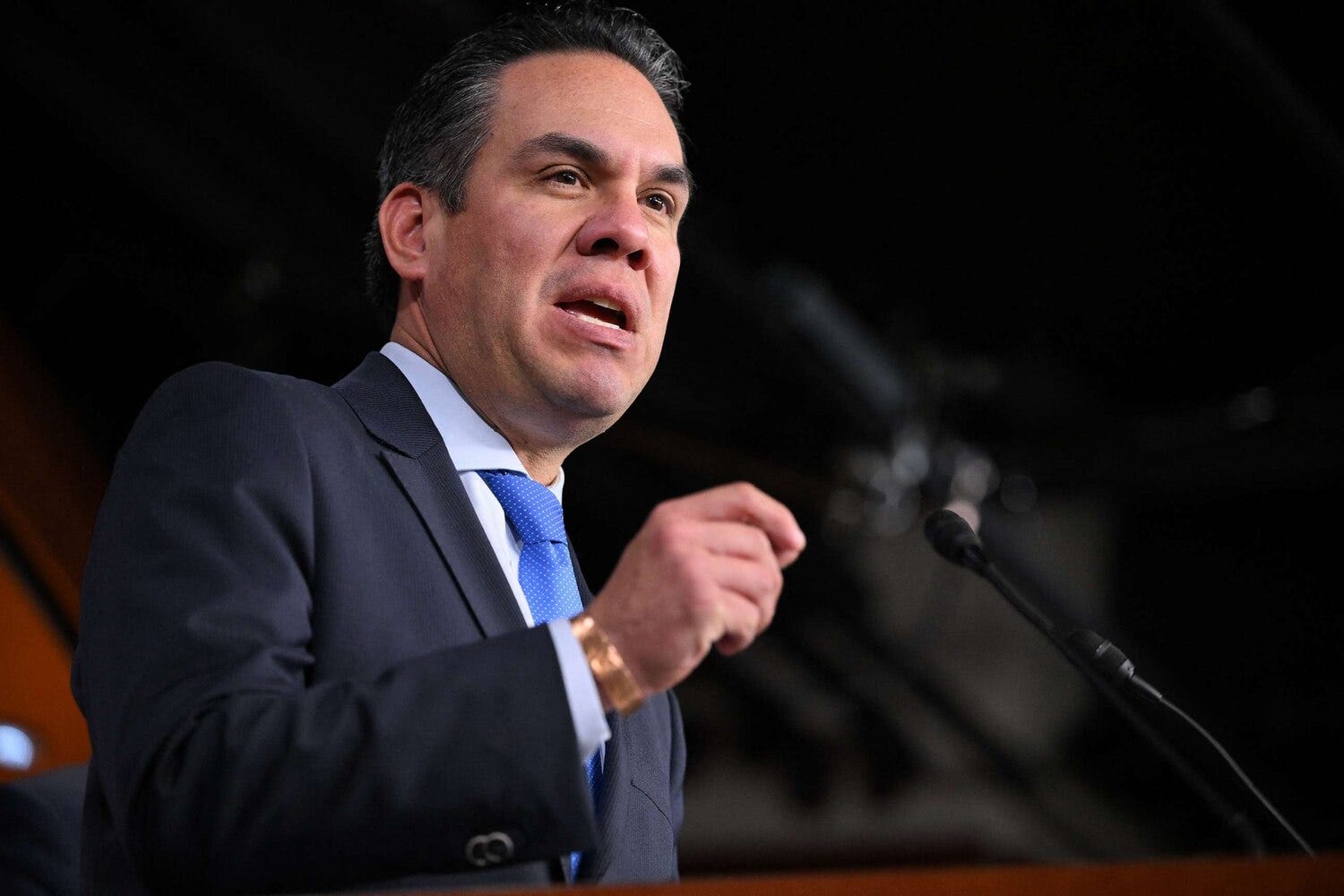House Dems slam Trump’s trade war
“We have said that Donald Trump will make America less safe and more expensive,” the number-three member told me.

House Democrats, from leadership to rank-and-file, slammed President Donald Trump for triggering a trade war that has left global tensions simmering, the stock market tanking and U.S. consumers concerned their daily costs will continue to rise.
Allow me to explain: Several members told me that the tariffs against the U.S.’s northern and southern neighbors, the Trump administration’s antagonistic posture towards Ukraine, and the president's conciliatory stance towards Russian President Vladimir Putin could destabilize the American economy and international order.
In the know: The Trump administration imposed significant tariffs on imports from Canada, Mexico and China today, sparking retaliatory measures from the three countries.
Canada and Mexico: A 25-percent tariff was imposed on all imports from Canada and Mexico, with a specific 10-percent tariff on Canadian energy products.
China: Trump increased the tariff on Chinese goods from 10 to 20 percent. The cumulative effect of the previous tariffs is up to 25 percent on an estimated $370 billion worth of imports.
In response, Canada announced it would impose 25-percent tariffs on $155 billion worth of U.S. goods. Effective next Monday, China declared reciprocal tariffs of up to 15 percent on U.S. agricultural products, including chicken, pork, soy, and beef. And Mexico indicated intentions to implement retaliatory tariffs on U.S. goods, with specific details to be announced in the coming days.
What members are saying:
“This is absolutely harmful. But we have said that Donald Trump will make America less safe and more expensive,” House Democratic Caucus Chair Pete Aguilar (Calif.) told me this morning before citing a Wall Street Journal editorial calling the trade war the “dumbest in American history.”
Rep. Robin Kelly (D-Ill.) called Trump’s tariffs, especially those imposed on Mexico and Canada, ridiculous.
“It’s absolutely ridiculous. When does it end? Retaliation after retaliation,” she added. “We’re just bringing more on ourselves and these have been our friends and our allies.”
First-term lawmaker Shomari Figures (D-Ala.) called the tariffs a reflection of the Trump administration's indifference to lowering the cost of living for everyday Americans.
“I think we need a more thoughtful approach, and we need one that puts people at the center of it—not the president’s ego.”
Not so fast: The Trump administration said the president is within his authority to impose the tariffs, designating the flow of fentanyl in the U.S. as a national emergency that necessitated economic action under a Carter-era law.
How we got here: During his 2024 presidential campaign, President Trump pledged to implement significant tariffs to protect American industries and reduce dependency on imports.
The promises included a universal baseline tariff, specific tariffs on the countries mentioned above, and legislation to grant the president authority to impose reciprocal tariffs on countries that levy tariffs on U.S. goods.
These proposals were part of a broader strategy to encourage domestic manufacturing and reduce reliance on foreign supply chains.
The final word: Higher prices on everyday goods, especially food, electronics, and household items, will have the biggest immediate impact on U.S. consumers.
U.S. farmers and manufacturers could face losses that ripple through the economy.
“Eight years ago when President Trump put his tariffs in place and that trade war led us to have to bail out those farmers,” New Democrat Coalition Chair Brad Schneider (D-Ill.) told me. “Farmers don’t want a bailout. They are hard-working people who want to succeed and pass what they do from generation to generation, and what the President is doing is undermining our agriculture sector, our rural communities, and our nation as a whole.”
Meanwhile, retailers like Best Buy warn about price hikes, and financial analysts estimate that inflation could tick up. In short, expect to pay more at checkout.
Read all about it: “No one wins a trade war” by William J. Bernstein: “Protective tariffs risk triggering a cycle of escalation that ends well for no one.”
